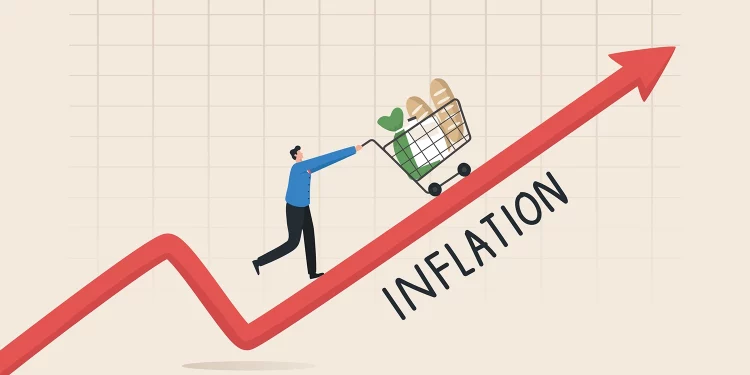Kenya’s annual rate of inflation for the month of February 2023 remained elevated rising by 0.2% points to 9.2% compared to 9.0% in January 2023.
The inflation rate has broken the steady decline that has been witnessed for the last three consecutive months when the rate fell from a 9.6% peak in October 2023 to 9.0% in January. The rate is still above the government’s target range of 2.5% to 7.5%.
The elevated annual inflation was mainly due to an increase in prices of commodities under food and non-alcoholic beverages (13.3 %); housing, water, electricity, gas, and other fuels (7.6 %); and transport (12.9 %) between February 2022 and February 2023.
The Consumer Price Index (CPI), which measures the percentage change in the price of a basket of goods and services consumed by households, increased by 0.6% to 130.1 in February 2023 from an index of 129.3 in January 2023.
Read: Kenya’s High Cost Of Living-Demystifying The Puzzle
The Central Bank of Kenya, primarily tasked with stabilizing prices, last month kept its key lending rate at 8.75% similar to what was recorded in November 2022 as the effects of the hiked rates were yet to be fully felt in the economy. The decision followed a 175-basis point hike on the central bank rate to 8.75% in 2022 in a bid to anchor the inflation within the CBK’s range.
Increasing the key policy lending rate makes borrowing more expensive, and this is expected to reduce spending by businesses and families with the ultimate goal of lowering the prices of goods and services that have plagued the economy this year.
The high inflation is mainly on the back of high fuel prices following the scaling down of the fuel subsidy and increased electricity prices due to high tariffs. Since fuel and electricity represent major inputs in most businesses, we expect the high prices to continue elevating the cost of production and consequently leading to high commodity prices.
As such, citizens should prepare for the continued high cost of living which will be exacerbated by the ongoing drought. Conversely, government securities will also lag as inflation lowers the present value of their future cash flow to potential investors leading to higher yields.
Email your news TIPS to editor@thesharpdaily.com

















